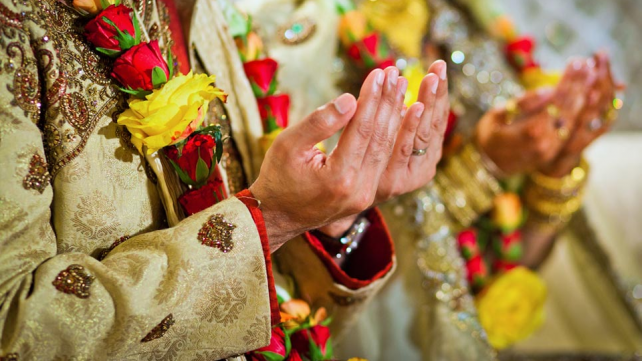Mehar(Dower) in Islam
“Mehar” is the Religious Obligation of the Groom
It is a practice of Islamic weddings to have a Mehar (in Arabic and Persian: mahr), also written more or Meher, which refers to the groom’s obligations to the bride (the payment also specifies how and when it should be done). A Mehar is a payment that the groom makes to the bride as part of the marriage ceremony (payment may also take place under certain conditions). It is common for money to be used as Mehar; however, it may also be jewellry, household goods, furniture, a house, or land that has been agreed upon by the bride. Marriage contracts usually include a Mehar clause. In an Islamic marriage, both partners have clearly defined responsibilities, and the rules regarding how to earn and spend wealth are accordingly outlined.
Islamic marriage or nikah, is considered a holy union that cannot be considered complete without a few essential components. A Mehar or dower payment is one of them.
In the Quran, Allah commands Muslims to pay their wives the Mehar “happily” because “Fareezah” means a duty.
What Does Dower(Mehar) Mean?
Dower(Mehar), which sounds like Mahr in Arabic, is equivalent to Mehr in Urdu. In Indian Muslim culture, grooms have an obligation to their brides, known as Mehar. Payment instructions include specific dates and times. In an Islamic marriage, a Mehar is paid. It may also be necessary to pay in hard cash.
Types of Mehar/Meher in Islam
Mehar/Meher in Islam can be divided into two types:
- Muqaddam (Moajjal or Prompt)
- Muakhar (Mawwajjal or Deferred or Payable on Demand)
A Mukaddam (Moajjal’s or Prompt’s) Mehar should be given to the couple after the wedding ceremony, while the Muakhar (Mawwajjal’s or Deferred’s or Payable on Demand) Mehar should be given based on the date agreed upon by the couple after the wedding ceremony. This was considered an important payment in terms of dower by Muqaddam Mahr. The Mehar rights of a woman cannot be deprived by her husband by himself, as it is an Islamic fundamental right that each Muslim woman is entitled to by faith. When the husband dies, the Mehar should be paid from the estate or wealth of the husband, in accordance with religious requirements. Depending on the type of Mehar, it could be money or jewelry, such as gold, silver, cash, clothes, estates, appliances, and so on.
- At the time of the Online Nikah (at our office), two witnesses shall be present.
- Muslim witnesses must be present.
- Witnesses must be sane.
- Witnesses must be adults.
- It is mandatory that they witness the contract at the time of nikah, and they are able to provide testimony in court (if necessary) to prove that the marriage took place in accordance with Islamic law.

Islam's Significance of Mehar:
Mehar is kept by the bride as payment for her wedding. This is the reason why a girl who owns nothing (gold or property) will have something to hold her rights in if she doesn’t own anything else (gold or property). If she decides to divorce later on in the future, she will return the Mehar to him in exchange for a Divorce or Khula. If a divorce occurs for ordinary reasons, the wife may keep the Mehar.
It is necessary for the Muslim groom and the bride to negotiate a financial arrangement prior to the wedding.
What are the Conditions of Mehar’s Legality?
When the husband dies or the marriage is consummated, the entire amount of the Mehar/dower will be paid to the wife. Although most husbands are in good financial standing, few intentionally give low amounts of dower. Low dower amounts make it impossible for women to maintain themselves. Due to this, women cannot sustain themselves. The problem can be solved by establishing a reasonable dower. This was done so that the amount of dower wouldn’t be governed by a marriage deed.
A Woman’s Right to Receive Mehar
Islam strictly limits anyone from taking it from a woman, whether her parents or husband, without her consent or permission. The Mehar is only available to the wife for taking, keeping, or using. She will own Mehar if she makes a profit from it, and if she does not make a profit, it will also be hers. If the divorce occurs before Rukhsati, the wife will receive half the amount. There can be no Islamic nikah without Mehar’s determination. An Islamic term for love and honor toward his wife is “Mehar,” which means to win her heart with a gift of love.
Pakistan Legal Advisors Offers Legal Services
Pakistan Legal Advisors Offers the following Services:
Laws relating to Families, Properties, and Corporations.
One of the most experienced law firms in Pakistan, we specialize in court marriage, traditional marriage, divorce, khula, child custody, and child maintenance, as well as taxation law, corporate law, and criminal law.
Our company provides expert consulting services in the above-mentioned areas. Providing our clients with a solution in legal matters at a very low cost is our philosophy. If you are in need of legal advice, do not hesitate to contact us so that we may offer you the expertise of a professional lawyer. If you are experiencing a problem, please describe it in the comment box below, mail us, or feel free to contact us.

Recent Posts
Have Any Question?
- (+62)81 157 5891
- support@domain.com
